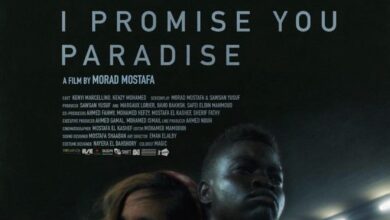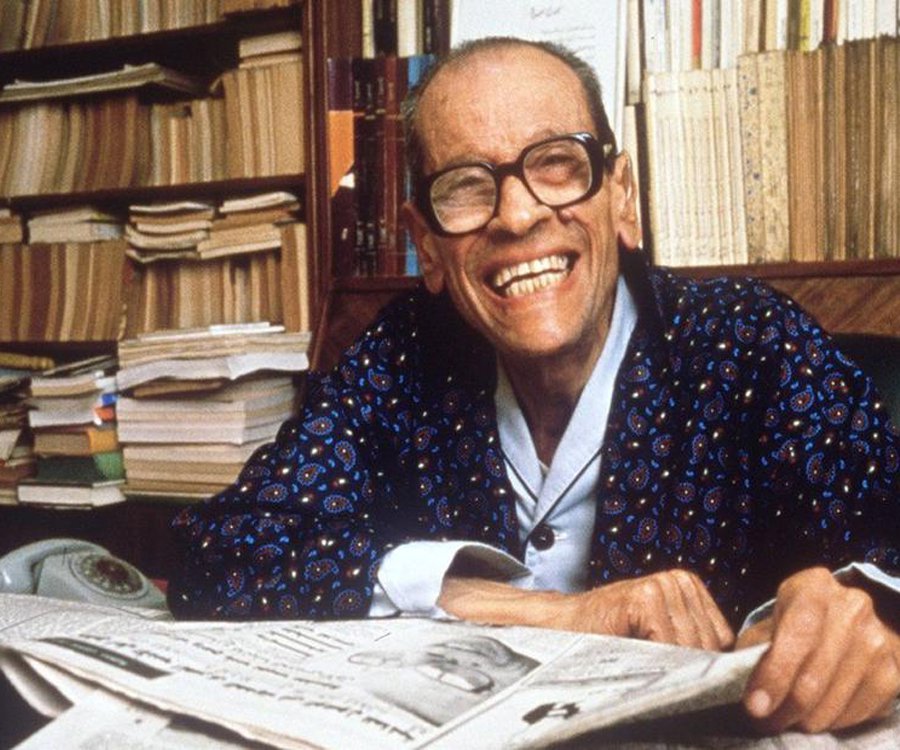The 16th annual National Film Festival commenced on 23 April at the Cairo Opera Opera House, showcasing the past year’s best film releases. Also part of the festival’s program are documentaries and short films, mostly produced by the National Cinema Center and the Higher Institute for Cinema, currently being screened at Al-Gomhurriya theater at the absurdly inconvenient time of 10 AM.
Many eyes are on director Ramy Abdul Jabbar, 31, who has managed to secure an award at the festival for the last four consecutive years, most notably for Ramses Car, about the first car manufactured in the Arab world, which received the award for best documentary under 15 minutes last year. My Husband is Dead, about the dire situation of widows in Mozambique, is Abdul Jabbar’s entry this year, and, though it hasn’t made the same waves as his previous gem, is nevertheless a top contender in its field.
Abdel Jabbar was commissioned to direct the documentary by the Dubai-based Hot Spot Films for the Al-Jazeera documentary channel as part of its “Of Africa” series. Reviewing the film a little under a year after it was broadcast, he decided it was a worthy entry for this year’s festival.
“Truthfully, I had forgotten about it, but when I watched it again I immediately liked it,” Abdul Jabbar told Al-Masry Al-Youm. “It was a difficult topic and a lot of effort was put into it. We managed to produce a film that really was up to a high aesthetic standard.”
With the use of numerous sources, mostly development workers and academics, the film outlines Mozambique’s occupation by the Portuguese and the 15-year civil war following its independence before focusing on the widows left behind in the war-ravished country.
One of the film’s more haunting images, of a widow getting remarried, skillfully sets the tone for what’s to come: Stepping outside the church after the ceremony, the paraplegic groom sits, unamused, in his wheelchair as the dejection and melancholy etched on his bride’s face contrast sharply with the cheer associated with her bright white dress. This is one of the poorest countries in the world, where most continue to struggle on a daily basis, and only the naïve and deluded allow themselves to be misguided by any hope or joy.
Viewers meet several widows, who have internalized their society’s view of them as worthless, as they cope with various hardships. Some collect cans to make ends meet; others have turned to prostitution. And in a country where women outnumber men five to one, many resort to sham marriages or consent to polygamy.
As the film gains momentum, their stories become horrifically surreal: Twelve women show up to a thief’s funeral, each claiming to be his wife, while a repatriated war refugee who contracted AIDS in South Africa convinces his wife to engage in unprotected sex with him because he doesn’t want to die alone.
The film nonetheless finds a silver lining at the adult education center AVIMAS (The Association of Women and Single Mothers), where hard-working social workers prioritize literacy, help the widows find jobs and steer them down a path of self-determination. Abdul Jabbar’s considerate and understated approach successfully highlights the quiet courage of these women. His skill as a filmmaker becomes even more apparent with his use of subtly suggestive atmospheric music to evoke the red-light districts and battlegrounds of these women’s stories, along with effective editing techniques that respect the gravity of their plight without dragging the film down to a tedious pace.
“Many of the people we met were truly downtrodden. The entire political system needs to be reformed if there’s going to be any change or hope,” concludes Abdul Jabbar. “But that’s going to take a real awakening and people working together.”
Abdul Jabbar has made an accessible and eye-opening film about Mozambique’s political despondency, and the traditions that cripple its women–both mentally and spiritually. The festival’s closing ceremony on Friday will reveal whether or not My Husband is Dead secures any awards for its makers’ efforts, but a failure to do so is unlikely to leave its director dispirited: The new docu-drama he’s preparing–about the Bedouin legend of Gabal el-Banat in Sinai–is already beginning to generate a buzz.




